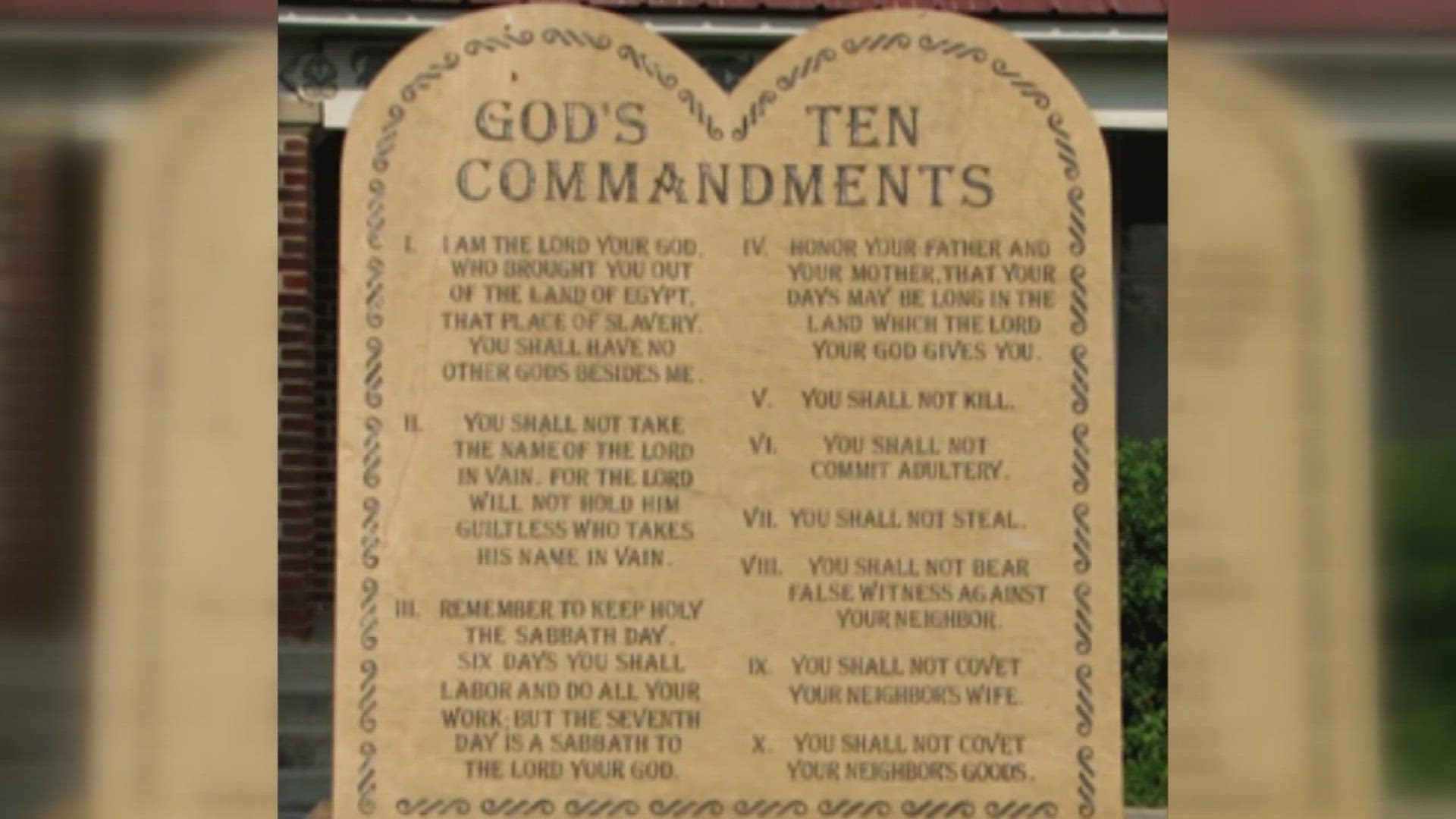NEW ORLEANS — In your breakdown, some people you might not expect have joined the lawsuit we first told you about last week. The plaintiffs are suing Louisiana education leaders over a law requiring the Ten Commandments to be displayed in every state-funded classroom.
A group of nine Louisiana public school families who include Jewish parents, a Unitarian Universalist minister, a Presbyterian pastor, and some non-religious families filed this lawsuit in US District Court in Baton Rouge.
They’re being represented by the ACLU of Louisiana and three other groups who say they’re seeking an injunction.
The lawsuit alleges that House Bill 71 is unconstitutional… and interferes with their right to direct their children’s religious education.
“My children are legally required to attend school, and they’re there to learn math, English, science, art, and so much more. But not to be evangelized by the state into its chosen religion,” Reverand Jeff Simms, a Presbyterian Minister in Covington, said.
Reverand Jeff Simms says, “chosen religion…” because as the law is laid out, these 11 mandated commandments are based on the Protestant version of that message. It includes language that does not align with Catholicism, Judaism, or some other faiths.
However, the defendants who will have to answer for it in court include members of the Board of Elementary and Secondary Education, who chose not to comment, and Louisiana State Superintendent Dr. Cade Brumley, who wrote in a statement to WWL Louisiana.
The Ten Commandments law passed with overwhelming support in Louisiana’s state legislature and was enthusiastically signed by our Governor. I look forward to implementing the law and defending Louisiana’s sovereign interest to select classroom content fundamental to America’s foundation.
Court precedent is on the plaintiffs' side in this case. In Stone V. Graham, the US Supreme Court ruled in 1980 that a similar Kentucky law violated the Constitution’s separation of church and state.
► Get breaking news from your neighborhood delivered directly to you by downloading the new FREE WWL-TV News app now in the IOS App Store or Google Play.

